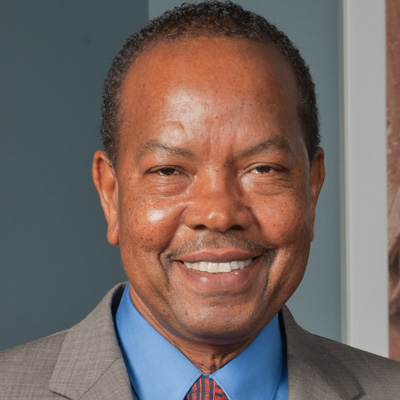Understanding age-related cell death in the brain to prevent it from happening
It is believed that neurodegenerative diseases, like Alzheimer's and Parkinson’s, result from cell death; however, it is unknown how or why cell death occurs. One potential cause are a family of proteins called molecular motors, that fail to function in the transportation of replacement components and nutrients. Dr. George Langford, Distinguished Professor of Neuroscience and Professor of Biology at Syracuse University, is interested in the cellular basis of learning and memory. By studying the way in which information is stored in the brain -- particularly the role of molecular motors -- Dr. Langford is working to understand the molecular mechanisms responsible for neurodegeneration. Through the understanding of such mechanisms, Dr. Langford and his team hope to lead to the discovery of new drug targets that could be useful in preventing neurodegenerative disease as well as candidiasis. Thus, his work is inspired by the hope that someday it may be possible to unravel the dynamic changes of the synapse in order to treat patients with memory loss or other symptoms associated with neurodegenerative diseases.
Dr. Langford’s expertise in the proteins of the cytoskeleton, or the transportation system in the nerve cells, has allowed him to observe dynamic changes in living cells in a novel and exciting way. His cutting-edge super resolution imaging techniques allow him to visualize molecular motors and the cargo they carry, the changing shapes of the cell, and the movements of the cell. With close collaborations with colleagues in Germany, at the Marine Biological Laboratory, and at the University of California, San Francisco, Dr. Langford and his team are making advances in our current understanding of how neurodegenerative diseases work at a molecular level. In addition to the quality of his research, Dr. Langford also has dedicated his professional career to promoting diversity in the sciences. He actively supports and mentors underrepresented minority students in his laboratory and works on programs that increase opportunity for aspiring researchers, especially for those underrepresented in the biomedical sciences.
Current research includes:
-
Neurodegenerative Disease: Dr. Langford’s efforts to understand how to prevent the loss of function of molecular motors is a step towards finding cures for neurodegenerative diseases like Alzheimer’s and Parkinson’s disease. Primarily, he studies the cytoskeleton and mechanisms of transport of organelles and vesicles in nerve cells. In fact, his collaborators and Dr. Langford discovered the actin-dependent component of vesicle transport in nerve cells and were the first to propose the dual filament model of transport. His basic research has thus played a role in paradigm shifting discoveries for cell biology and neuroscience.
-
Candidiasis: Candida albicans is a yeast that exists in the environment all the time but can be pathogenic. In certain conditions, if there is a defect in the immune system, the pathogen can infect an individual and cause major damage and potential death to the individual. Dr. Langford has found that the yeast produces virulence factors which then affect the cytoskeleton and molecular motors leading to host cell death and proliferation of the pathogens. Dr. Langford and his team hope that through understanding this mechanism, they can prevent infection and find potential drug targets for patients with defects in their immune system. Therefore, his research may be an important movement towards effective drug therapies for patients with HIV, those on drugs that suppress the immune system, or even patients wearing IV devices that become loci of infection.
Bio
Growing up on a farm, Dr. Langford was interested in nature and learning about the plants and animals around him. He was lucky enough to attend a high school in which he was encouraged to move towards the sciences and explore the natural world academically. In graduate school, cell biology was an exciting area where he could pursue his interests as he continued to mature with the field.
Dr. Langford was drawn to science as a way to understand living organisms and the molecular basis of disease. As a cell biologist by training and with an interest in studying the cellular basis of learning and memory, his primary focus has been on the structural changes or remodeling of cell-to-cell junctions between nerve cells when information is stored in the brain. Additionally, he studies candidiasis, a disease caused by the yeast Candida albicans.
In addition to his academic rigor, Dr. Langford feels that “mentors are critical in the career of scientists.” In fact, Dr. Langford promotes efforts to include underrepresented minorities in the sciences. He has started several programs during his career including those that connect students with professors so that they can pursue research internships. Such programs help to encourage students to continue within the sciences professionally. Additionally, he is working with the Burroughs Wellcome Fund to provide fellowships to underrepresented minority postdocs in order to ensure that they are as competitive as their white colleagues.
Aside from research, in his free time, Dr. Langford enjoys playing and listening to music. As a young child, he spent much of his time playing piano and now, appreciates attending his son’s jazz concerts. In the summer, Dr. Langford also spends much of his time gardening and savoring the outdoor summer sun.
Website: biology.syr.edu/faculty/langford/langford.htm


